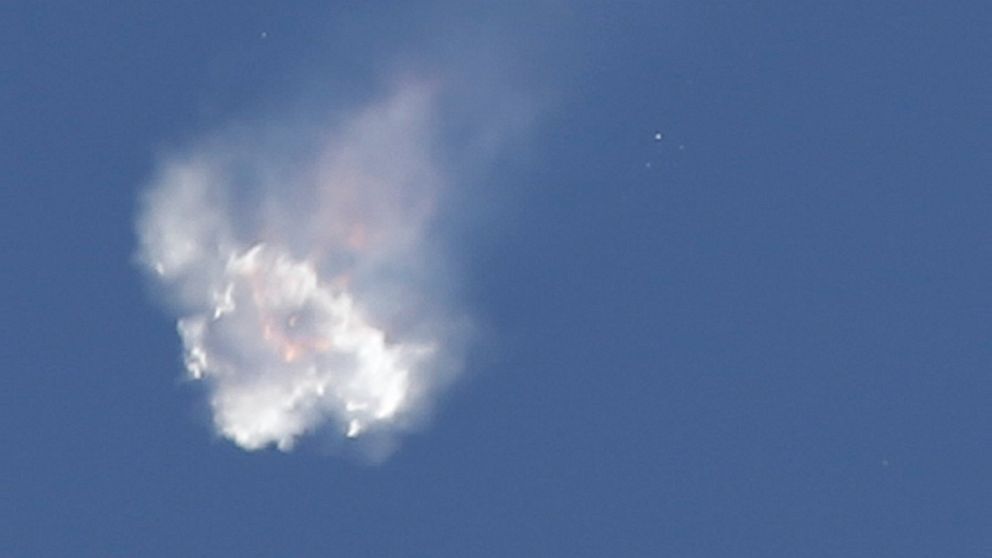SpaceX: Faulty Strut Caused Rocket Explosion
The rocket burst into flames just 139 seconds after launch.

— -- A faulty strut likely caused the June 28 SpaceX rocket explosion that destroyed more than 4,000 pounds of cargo bound for the International Space Station, founder Elon Musk said today.
The steel strut, made to handle about 10,000 pounds of force, failed at just 2,000 pounds of force, Musk said. It was holding down a helium tank in the Falcon 9 rocket’s upper stage liquid oxygen tank when it snapped, sending the helium bottle hurtling towards the top of the tank. The unmanned rocket — loaded with a Dragon cargo capsule — burst into flames just 139 seconds after its launch over Cape Canaveral.
SpaceX will no longer use those struts (made by an unnamed outside supplier) and will move to test each strut individually regardless of its supplier certification, Musk told reporters.
The Dragon cargo capsule, which survived the initial explosion, was not equipped with the software that could have caused it to initiate its parachutes when the launch failed. It’s now at the bottom of the ocean.
“That’s an unfortunate thing, because we could have saved Dragon,” Musk lamented.
“To some degree the company as a whole became a little complacent over the course of seven years,” he told reporters today. “The vast majority of people at the company today had only ever seen success. When you’ve only ever seen success, obviously you don’t fear failure quite as much.”
Still, SpaceX’s next launch could come as early as September, he said.
Meanwhile, the company will focus on its investigation, which is still in its early stages and remains “quite confusing,” according to Musk. They’re deploying a remote submersible to investigate sunken oceanic debris.
But it’s going to take time to fully assess the data. After all, it is rocket science.
“Generally, when there’s an idiomatic expression about something, there’s a reason for it,” Musk deadpanned.



